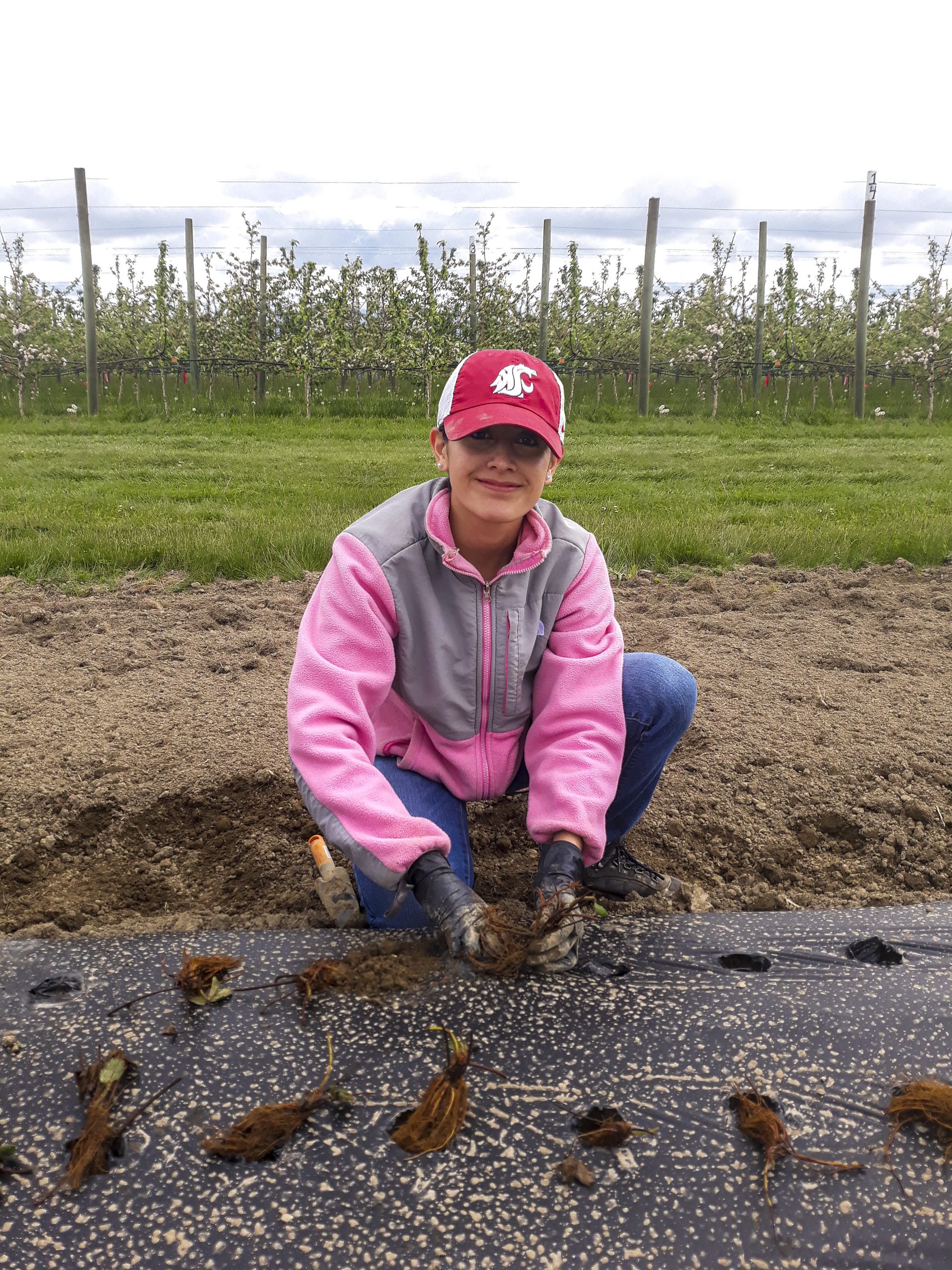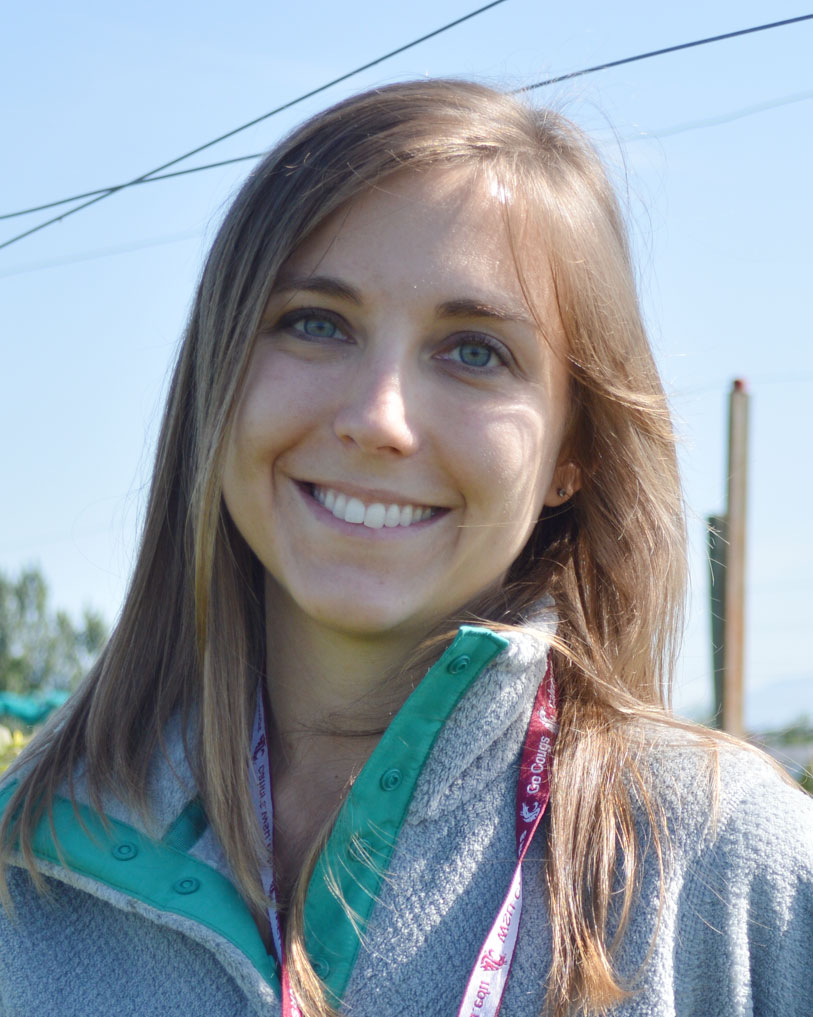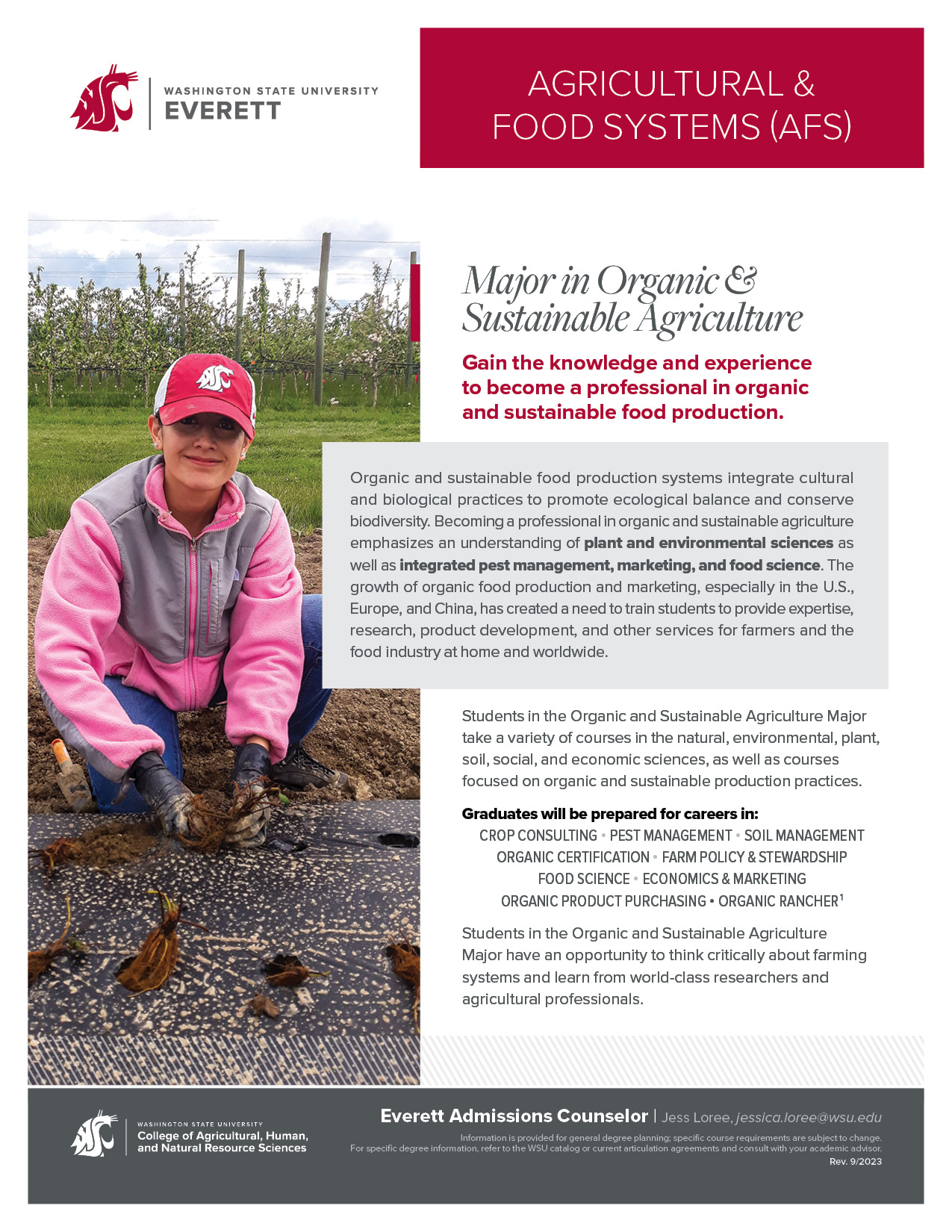Bachelor of Science
Agricultural & Food Systems (AFS)
Gain knowledge and experience to become a professional in organic and sustainable crop production.

WSU Everett is a transfer institution providing upper division courses to complete a Bachelor of Science degree with a major in Organic and Sustainable Agriculture. You can fulfill the majority of WSU’s general education (UCORE) and the pre-program acceptance requirements at any college (2 year or 4 year), then complete your Bachelor of Science in Organic and Sustainable Agriculture at WSU Everett.
WSU Course Requirements
Students interested in the transfer program are encouraged to contact WSU admissions counselor Jess Loree (jessica.loree@wsu.edu) who can help you find equivalent courses at your current school.
Jess Loree, WSU Admissions Counselor
jessica.loree@wsu.edu
How to ApplyApply to the Everett Organic and Sustainable Agriculture Program

Organic and sustainable food production systems integrate cultural and biological practices to promote ecological balance and conserve biodiversity. Becoming a professional in organic and sustainable agriculture emphasizes an understanding of plant and environmental sciences as well as integrated pest management, marketing, and food science. The growth of organic food production and marketing, especially in the U.S., Europe, and China, has created a need to train students to provide expertise, research, product development, and other services for farmers and the food industry at home and worldwide.
Students in the Organic and Sustainable Agriculture Major take a variety of courses in the natural, environmental, plant, soil, social, and economic sciences, as well as courses focused on organic and sustainable production practices.
Graduates from the AFS Major will be prepared for careers in:
- Crop Consulting
- Pest Management
- Soil Management
- Organic Certification
- Farm Policy & Stewardship
- Food Science
- Economics & Marketing
- Organic Product Purchaser
- Organic Rancher (this focus requires additional coursework)
Students in the Organic and Sustainable Agriculture Major have an opportunity to think critically about farming systems and learn from world-class researchers and agricultural professionals.
Course Highlights

Dr. Gabe LaHue
Soil: A Living System (SOIL_SCI 201)
This introductory 3-credit course is structured around the “five pillars” of soil science, which include soil genesis, morphology, and classification; soil physics; soil chemistry; soil biology; and soil fertility, with the final unit focusing on past, current, and future challenges and opportunities in soil science.
Organic and Sustainable Agricultural Certifications: From Principles to Practice (SOIL_SCI 303)
This course presents the principles and practical requirements for certification under the USDA National Organic Program and other certifications focused on sustainable agricultural practices.

Dr. Lisa DeVetter
Pomology (HORT 310)
This 3-credit course provides an overview of the botany, history, production, and uses of temperate-zone tree and small fruit crops.

Dr. Louis Nottingham
Ecological and Integrated Pest Management (ENTOM 351)
This 3-credit entomology-focused course covers the principles and strategies for organic and integrated pest management (IPM) in commercial agricultural systems.

Dr. Deirdre Griffin LaHue
Soil Health and Regenerative Agriculture (TBA)
A seminar series including invited guest speakers will allow students to engage with key researchers and practitioners in the fields of soil health and regenerative agriculture, and more deeply examine the topic through facilitated discussion exploring the themes of carbon & soil health; biology & ecology; human health; and practice & policy.

Dr. Chakradhar Mattupalli
Biology and Control of Plant Diseases (PL_P 501)
This 3-credit course introduces students to basic concepts regarding the biology of plant pathogens, the role of environmental conditions in promoting development of plant diseases, and the development of effective approaches to disease control.
Employment Opportunities
OSA students studying through WSU Everett who would like to gain hands-on experience in agricultural research are encouraged to apply for temporary employment opportunities at WSU Mount Vernon NWREC. The Center hosts ten agricultural research programs and we frequently have openings for hourly research assistants.
Students who are interested in opportunities at NWREC are encouraged to contact Gabe LaHue. OSA students may also contact Jess Loree, WSU Everett OSA student advisor for more information.
Resources
Jess Loree, WSU Admissions Counselor
jessica.loree@wsu.edu
Apply to Everett Organic and Sustainable Agriculture Program
If you require an alternative format for a document provided in this webpage, please contact mv.nwrec@wsu.edu or call 360-848-6153.
